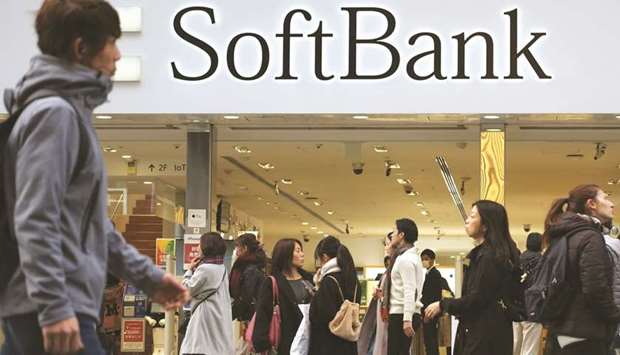SoftBank Group Corp is set to raise ¥2.65tn ($23.5bn) in Japan’s biggest-ever IPO — a share sale widely regarded as finalising the group’s transition from domestic telco to a monolithic global tech investor.
Telco unit SoftBank Corp yesterday priced its stock at 1,500 yen apiece, as previously indicated.
It also said it will sell all extra shares set aside for excess demand, taking the total just shy of the record $25bn raised in 2014 by Chinese e-commerce giant Alibaba Group Holding Ltd, a SoftBank Group portfolio company.
The group, which controls the world’s biggest tech private equity fund at nearly $100bn, will use the proceeds to invest in startups which have ranged from tiny games makers to US ride-hailing giant Uber Technologies Inc.
“Demand was well above the number of shares on offer,” SoftBank Corp said, declining to disclose by how much.
The stock will debut on the Tokyo Stock Exchange’s first section on December 19.
The IPO pricing comes just days after Japan’s third-largest mobile phone network provider by subscriber numbers suffered a rare nationwide service outage.
SoftBank said the disruption would not affect its earnings or dividend forecast. But other causes of concern abound.
The government wants to see a decline in mobile phone charges just as competition is set to increase with the market entrance next year of e-commerce firm Rakuten Inc.
Moreover, Tokyo plans to ban government purchases of telecommunications equipment from Chinese maker Huawei Technologies Co Ltd, sources have told Reuters.
SoftBank has a long relationship with Huawei that has included joint trials of fifth-generation (5G) network technology.
Yesterday, Kyodo News reported that SoftBank will no longer use Huawei equipment for its current network as well as in 5G.
The firm told Reuters it was closely watching government policy.
Earlier in the IPO process, SoftBank Group’s ties to Saudi Arabia — whose contribution makes up almost half of its massive Vision fund — caused investors to sweat after Saudi security forces were implicated in the murder of a dissident journalist.
SoftBank offered nearly 2bn shares for sale raising concern of oversupply, particularly as it is widely perceived to be a mature business with consequently limited growth prospects.
It allocated over 80% of the sale for domestic retail investors, banking sources have said.
To stimulate interest, the deal’s domestic lead underwriters pursued an unprecedented marketing campaign — including what are believed to be Japan’s first TV adverts for a private firm’s IPO.
“Retail investors see IPO stocks as profitable,” said Naoto Akashi, general manager at SBI Securities, Japan’s biggest online brokerage and one of the lead underwriters for the domestic portion of SoftBank’s IPO.
“In popular IPOs, there are several cases this year in which we received orders worth over 1 tn yen for a single deal during book-building period,” he said, declining to comment specifically on SoftBank.
Kazuto Hayashi, chief executive of smartphone brokerage startup One Tap BUY, said the IPO also attracted many young investors, some participating in an IPO for the first time.
Still, brokerages said they would be able to attract enough investors with SoftBank’s dividend alone.
SoftBank likely set its indicative share price at ¥1,500 — rather than a price range, as is the norm — to keep its dividend yield among the highest in Japan at 5%, brokerages said.

People walking in front of a shop of SoftBank in Tokyo. The telecoms giant is set to raise $23.5bn in Japan’s biggest-ever IPO, a share sale widely regarded as finalising the group’s transition from domestic telco to a monolithic global tech investor.
